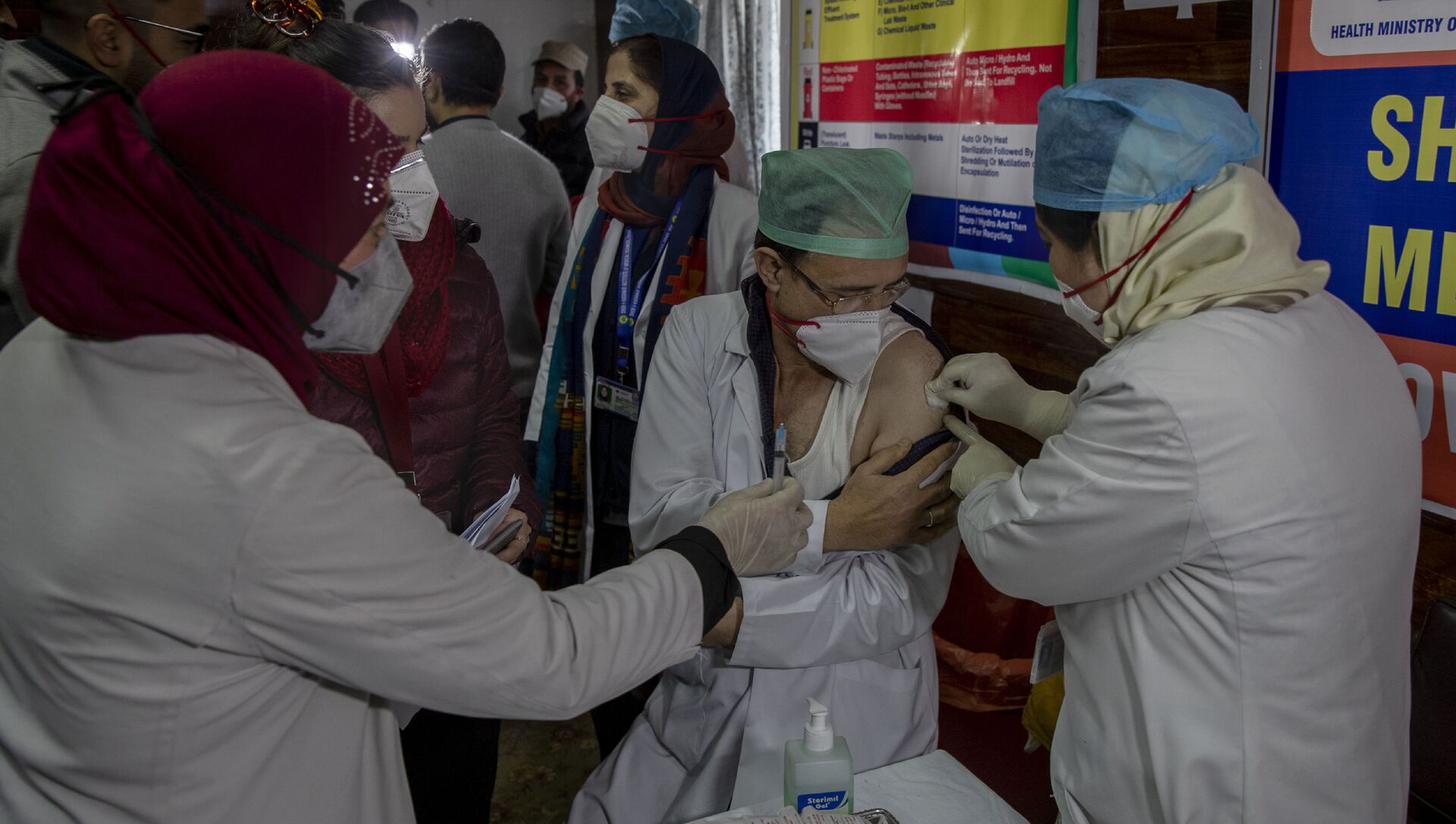With the second wave of the coronavirus diminishing in India, the markets are flooded with a wide range of drugs claiming to be effective against the contagious disease.
From preventive to therapeutic treatments, Indians are now spoiled for choice as more and more anti-COVID-19 medicines enter commercial markets. This is in stark contrast to the limited choices Indians had during the first coronavirus wave last year.
On 24 May, drug majors Roche India and Cipla announced the launch of Roche's Antibody Cocktail priced at INR 59,750 ($822). It is for treatment of mild to moderate COVID-19 in patients who are at high risk.
In a joint statement, Cipla and Roche said that the first batch of the Antibody Cocktail is now available in India and the second batch will be available in June. “In total, they can potentially benefit 200,000 patients, as each of the 100,000 packs available will offer treatment for two patients".
Mid-June will witness the country’s first and domestically developed anti-COVID drug – 2DG – to be available in the market for commercial use.
The drug was developed by the Institute of Nuclear Medicine and Allied Sciences in collaboration with Dr Reddy's Laboratories, a pharma company based out of Hyderabad city. It is in powder form, available in a sachet, and can be taken orally by dissolving in water.
The drug was recently launched by Indian Defence Minister Rajnath Singh and has so far been distributed in Delhi hospitals for treating COVID-19 patients.
Talking to Sputnik, Rajesh Tripathi, an expert and adviser in the pharmaceutical sector, said: "In April, when the second wave of coronavirus turned lethal in India, anti-viral drug Favipiravir rocketed to the rank of the largest selling pharma brand for the first time ever in the domestic retail market. It was marketed by the Mumbai-based Glenmark".
“Though the drug' efficacy has been under a cloud in India, it is still being widely prescribed and used widely in COVID-19 therapy across the country", he said.
He shared that the Indian market right now is seeing a large number of options available for treatment of the virus – and it is not just about vaccines and therapeutic medicines.
“There is a huge boom in the pharma sector dealing with immunity boosters. It is bewildering how many options are being given to the Indian customer. The doctors too are profusely recommending use of immunity boosters", Tripathi stated.
With the pharmaceutical sector booming amid the pandemic, the demand for coronavirus vaccines has gone up phenomenally.
From two options available a year ago, AstraZeneca's Covishield, manufactured by the Serum Institute of India (SII), and Bharat Biotech's Covaxin, Indian authorities have stepped up efforts to introduce many more in the market.
A few more domestic vaccines, including ones made by Biological E (manufacturing the Johnson and Johnson vaccine for the US) and Gennova, are in the pipeline. They are expected to receive clearances by next month.
Russia's vaccine – Sputnik V – has also hit the Indian market and there are hopes of it becoming part of the government vaccination drives.
With the Russian Direct Investment Fund (RDIF) and Panacea Biotech, having launched the production of Sputnik V in India, 100 million doses of the vaccine are expected to be produced per year.
India’s federal government is in talks with US pharma company Moderna, which is expected to launch a single-dose COVID-19 vaccine in India next year.
Indian Ayurvedic Anti-COVID-19 Treatment Flourishes
Patanjali Ayurved, India's largest pharma company selling products based on ancient Indian knowledge of medicine and that extensively uses herbs for treatment, was the first to come out with a treatment against COVID-19 in June last year.
Its brand product, Coronil, has been in great use in India, although questions have been raised about its efficacy by allopathic doctors.
Last year, the federal government said the drug cannot be marketed as a cure, and its manufacturing company needed to market it as an immunity booster.
However, it is regarded by many people as an effective measure against the deadly virus. On 25 May, the state government of Haryana announced that 100,000 Coronil kits would be distributed amongst coronavirus patients free of cost across the state.



